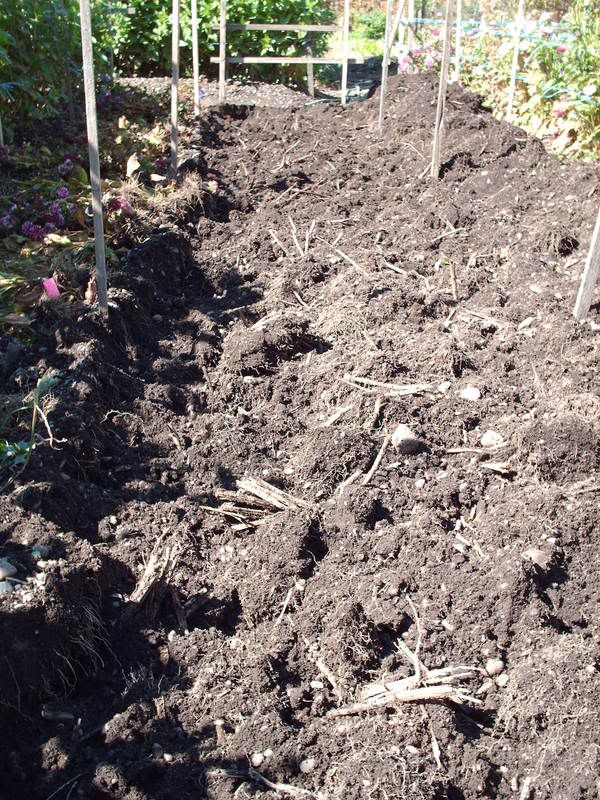Anyone here do their composting in a trench? I am currently beginning to start a compost bin for my leaves, grass and kitchen scraps, but I was wondering about at the end of my season when I have all the leftover veggie plants, if I could just trench them? Maybe dig a one foot trench every five or ten feet depending on how much material I have and burying it. Would this compost by the time my garden is tilled in the spring? Or would I have to wait a year before that garden is useable? Would I still have to add the browns, like fall leaves to get it started?
Just curious if anyone else uses this method. Last year was my first attempt at a garden, and I'm sure the grass that was tilled under was great organic matter, but I'm concerned that I won't keep having new organic matter put in. I don't think I can make enough compost to supply both of my garden plots unless I have a HUGE area to devote to composting! The garden I had last year was 400 sqft, and I had another plot tilled out in fall that is 700 sq ft. I'm not really worried about the new garden, yet.
Although I did leave my bean plants in the garden last year and those have broken down pretty nicely. I also left some corn stalks, but those haven't broken down as well, even though I turned some under last fall.
Sorry so long, and thanks in advance!!!
PS. I live in northern Indiana and my frost free days are May 5 - Sept 10, if that helps at all
Just curious if anyone else uses this method. Last year was my first attempt at a garden, and I'm sure the grass that was tilled under was great organic matter, but I'm concerned that I won't keep having new organic matter put in. I don't think I can make enough compost to supply both of my garden plots unless I have a HUGE area to devote to composting! The garden I had last year was 400 sqft, and I had another plot tilled out in fall that is 700 sq ft. I'm not really worried about the new garden, yet.
Although I did leave my bean plants in the garden last year and those have broken down pretty nicely. I also left some corn stalks, but those haven't broken down as well, even though I turned some under last fall.
Sorry so long, and thanks in advance!!!
PS. I live in northern Indiana and my frost free days are May 5 - Sept 10, if that helps at all

